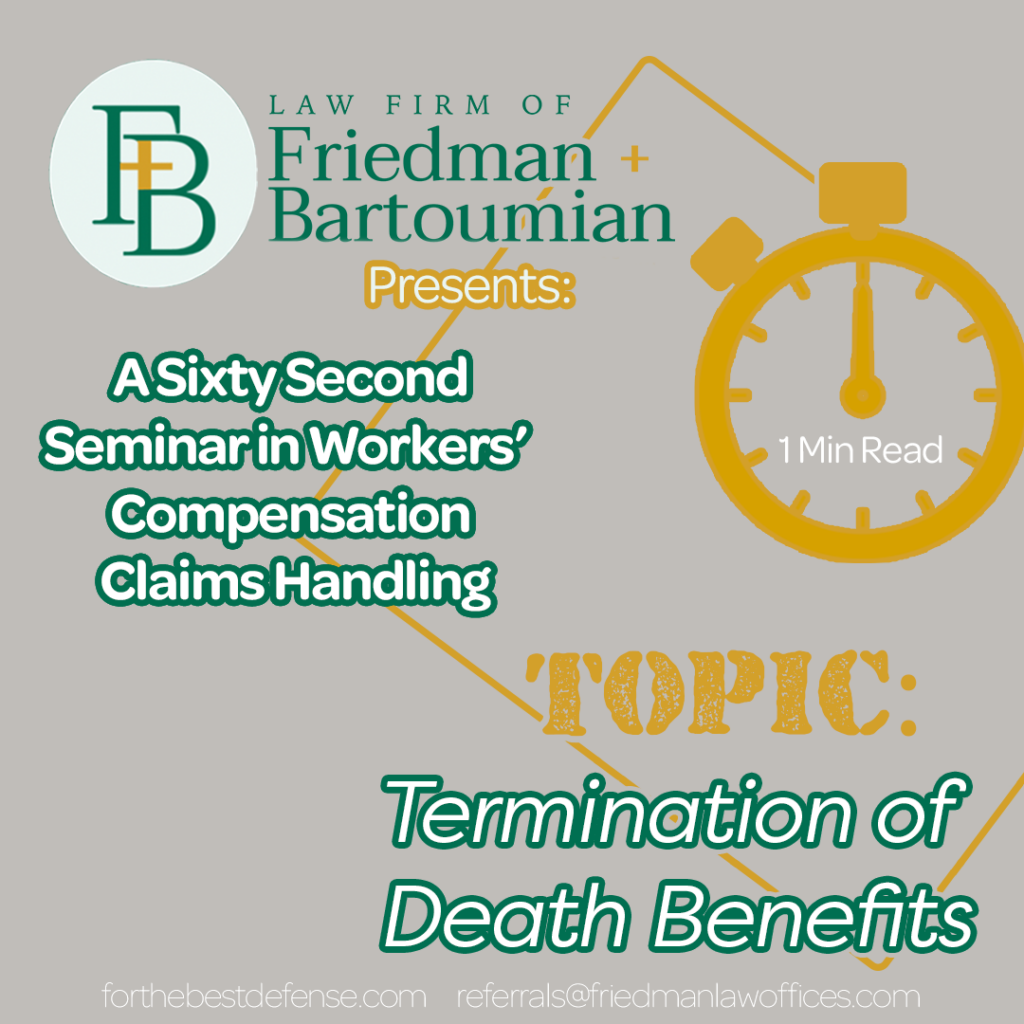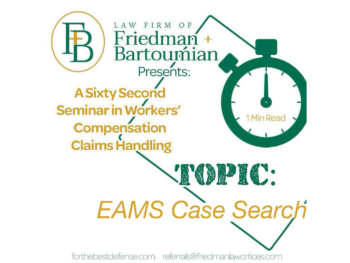
We believe most claims professionals are aware that there two methods which allow for termination of workers’ compensation death benefits. They are:
- Payment of benefits in full, or
- Upon the death of a dependent
Inexplicably, a third method for termination of death benefits has also been put into use, a method which is not only illegal but subject to penalty. Various claims administrators are terminating death benefits once a minor child reaches age 18. Apparently, many adjusters do not realize there are two types of death benefits; one that allows termination of benefits at age 18 and another that does not. The purpose of today’s blog is to explain the difference between the two.
First, whenever death benefits are awarded, every dependent, including minor children, receives a dollar-specific award pursuant to LC §4702. By way of example, if a 15-years-old minor child is awarded $250,000 payable at $690 per week, that child will receive these payments until $250,000 is paid in full, which in this example will take about 7 years to pay out. The 15-years-old child will be 22 years old when death benefits end. For a claims administrator to cut-off benefits when the dependent reaches age 18, would be inappropriate and subject to penalty as death benefits would have been terminated four years too early.
On the other hand, suppose an 8-year-old child is awarded a $250,000 death benefit pursuant to LC §4702, payable at $690 per week. Once again, it would take about 7 years to pay out the full $250,000 death benefit. Afterwards, we then look at the child’s age. In this case the child would still be a minor at age 15. Therefore, an additional death benefit under LC §4703.5 would come into play. This benefit is officially known as “Additional Minor Periodic Death Benefits.” It calls for the continuation of payments until the minor child reaches age 18, at which time LC §4703.5 benefits would terminate. Unfortunately, some claims administrators are confusing the termination date for LC §4702 benefits with that for LC §4703.5 benefits. They are terminating death benefits for all minor dependents upon reaching age 18. Again, only LC §4703.5. (additional minor periodic death benefits) end at age 18, not §4702 benefits.
In addition to the above, three more laws effect death benefits and/or the termination date:
- With respect to LC 4703.5 benefits, a dependent minor child of a deceased public safety officer involved in active law enforcement or active firefighting duties is to continue receiving death benefits if currently in high school and under the age of 19.
- If a dependent child is mentally or physically incapacitated from earning, then death benefits continue under LC §4703.5 for life. Again, this law applies only to a decedent’s incapacitated child of any age. It does not apply to an incapacitated spouse.
- According to Partida, Haro v. Go Native (2014 Cal. Wrk. Comp. P.D. LEXIS 341) a workers’ compensation judge has the authority under LC §4702(b) to award death benefits at any rate so desired, but this discretion only applies to benefits under LC §4702 and not §4703.5. This is important distinction since Additional Minor Periodic Death Benefits are to be paid at the true TD rate and not at any rate so determined by the judge, which means the death benefit weekly rate will most likely decrease once Additional Minor Periodic Death Benefits are to begin being paid.
Administering death benefits can be complicated. Feel free to contact the experts at F+B for assistance as needed!


 The Waiting Period: A 60-Second Seminar in Workers’ Compensation Claims Handling
The Waiting Period: A 60-Second Seminar in Workers’ Compensation Claims Handling
Leave a Reply